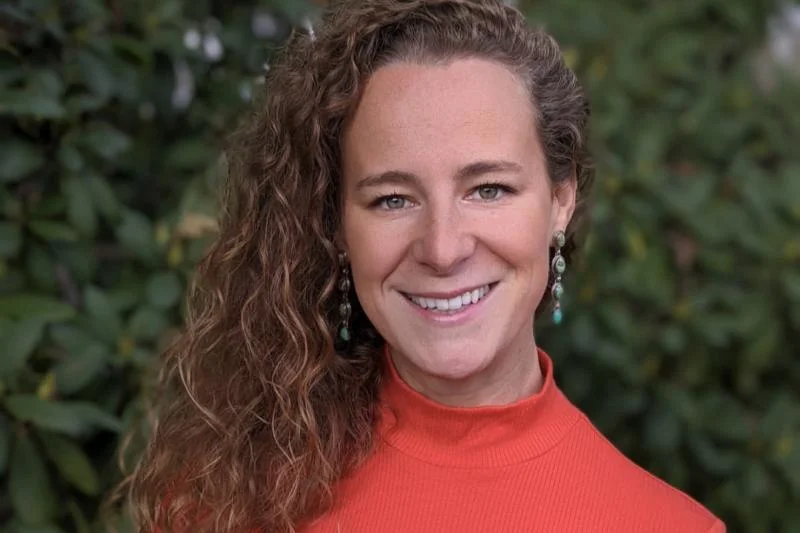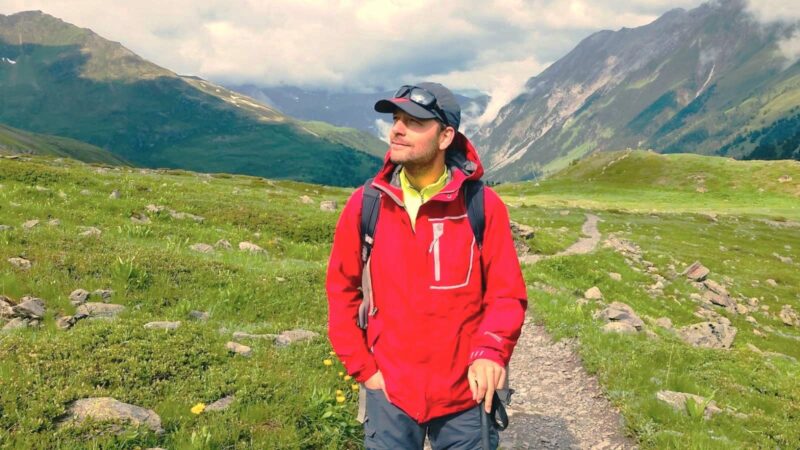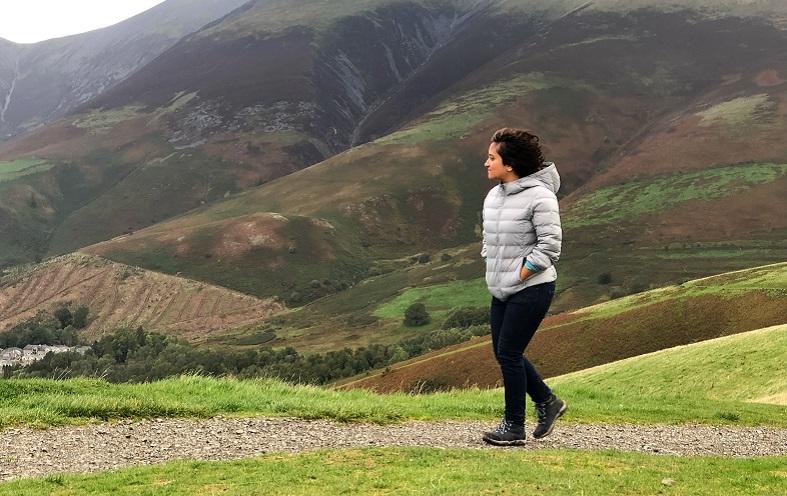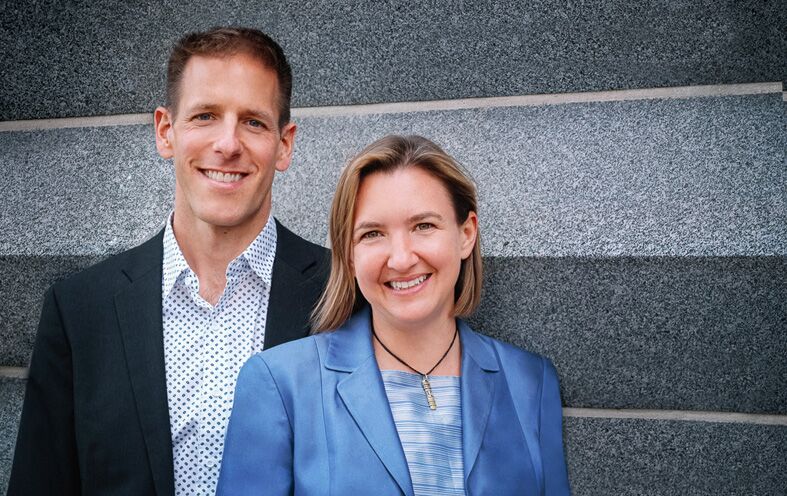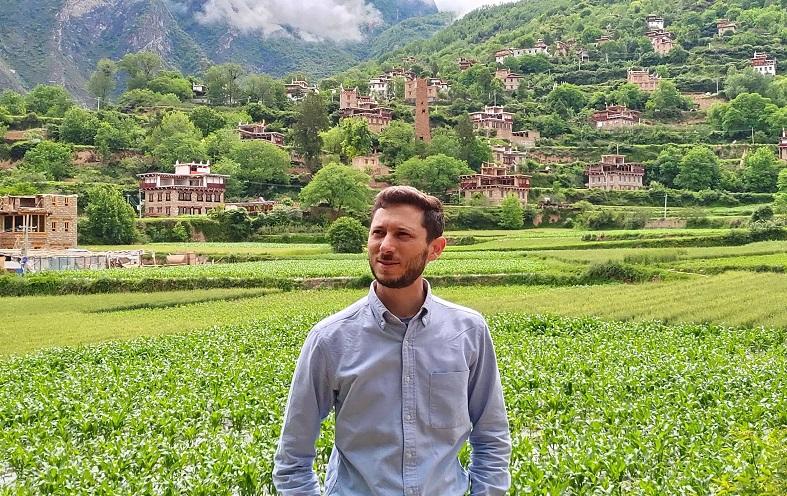
Rika Jean-François, in charge of corporate social responsibility and sustainable tourism programming at ITB Berlin, in this interview shares her thoughts on the way ahead for sustainability in tourism: the key topics, trends and challenges.
Rika, do you remember what triggered your interest in tourism?
I think my father passed the “travelling bone” on to me. I’ve always loved to travel since I was a child. You get to see so many fascinating new things and meet all kinds of people! Consequently, I studied social anthropology with a focus on cultural identities and languages.
Travel provides the opportunity to experience the richness of this world, getting in close contact with other people and cultures – it opens up a brand-new world, fights prejudices and creates bridges; you get to understand that people may look and act differently, but basically all human beings just need the same: affection.
Do you remember the first time you heard about “sustainability” linked in tourism? And has your view on sustainable tourism changed since then?
During my studies, I came across the concept of “soft tourism” by Jost Krippendorf and it made total sense to me. I believe it is an attitude towards life to consider humanity and compassion a basic principle of thinking, in every context.
When, years later, I first met Gopinath Parayil from the Blue Yonder (nowadays our official responsible tourism partner at ITB), I knew I had to carry it further.
My view has not really changed since then, but I think today it is more important than ever to also create awareness about the social aspects. Most colleagues in the industry still tend to only talk about eco-friendliness, environmental impact. It is not enough to only protect nature and forget the social circumstances.
Since joining ITB Berlin in 2004 as Corporate Social Responsibility specialist, you have put a strong focus on promoting responsible tourism, diversity and ethnic identities. Reflecting on your work at ITB so far, which would you consider your main successes linked to promoting sustainability and responsibility in tourism?
Well, the mere fact that we have created the largest tradeshow-platform worldwide to discuss sustainable and responsible tourism issues is a success – but this is also linked to the interest and engagement of all those amazing entrepreneurs who come together at ITB!
The “Responsible Tourism Networking Event” brings together a constantly growing crowd. Another big success for me is the fact that we also created the world’s most important meeting point for LGBTQ+ Travel! There are still so many destinations where LGBTQ+ travellers cannot be themselves.
By clearly standing in for human rights and against discrimination because of sexual orientation in tourism, ITB can give hope to those people living in these countries.. Tourism (and the money involved in it..) can open doors and be a vehicle for a better life.
Looking back at ITB’s own CSR trajectory, in your view, which were the main CSR challenges that ITB as world’s largest trade fair for tourism professionals has had to tackle to be where it is today?
ITB is not independent but part of Messe Berlin GmbH, a company nearly entirely owned by the City of Berlin, so we depend on both, political and internal decisions. We are doing our best to make the fairgrounds more sustainable and work on our carbon footprint.
To really make a difference, ITB also needs the cooperation of all exhibitors: Even though we call on them, especially the waste of paper during the fair is still a big challenge. Another challenge is gender equality, especially the equal representation of women at the ITB Convention slots.
With regard to content, when I first started, I also sometimes had to hold my ground – but by now CSR is accepted as one of ITB’s main pillars, a cross-sectional task. I have all the support.
As a trade fair, ITB provides a unique point of contact for both travellers and enterprises to communicate and engage with responsible practices and even trigger behaviour change. How do you personally make the business case for sustainability?
People have come to realize that at a trade show we are not handling CSR as a philanthropic nice-to-have issue, but we are also talking business. Investment in environmental-friendly technologies and humane HR policies will 100 % pay off in the future. Those who stay ignorant will lose competiveness at some point.
Also, if we continue exploiting the planet unsustainably, we will destroy our “product”: there will be no future for tourism. We need to think holistically.
Having witnessed the introduction (and often failure) of dozens of well-meaning sustainability initiatives over the years, which would you consider the key success factors which characterize those who make it?
The key success factor is enthusiasm, the idea behind it. If this passion is combined with the power of persuasion – and of course necessary economic and marketing skills, nothing can go wrong. I believe in the power of networking! You have to build a strong network and create a reliable supply chain.
Is sustainability performance becoming a key factor for business and destination competitiveness and reputation? Where are the links?
We observe a changing attitude in the last years. Especially in the industrial nations, there is a shift towards eco-products, organic food, slow food, fair trade and body-consciousness – starting with the so-called LOHAS [Lifesstyle of Health and Sustainability], who are trendsetters.
There still might not be a strong “willingness to pay” more for it, but these ideas are now penetrating mainstream; you can now find a fair trade or”bio” corner in very much every supermarket in Germany.
Tourism will also be part of this lifestyle change – and it surely will be a question of competitiveness and reputation to jump on that train, all along the supply chain!
I believe that responsible sustainability will be the new luxury in travel. Digitalization speeds up the process – social media contributes a lot to the current change of mindset.
In your view, which international events and organizations are the most proactive in leveraging their influence to promote a rethinking of tourism “business as usual”?
There are plenty of them! Events, organizations and associations are indeed very important, as they are ideal networking platforms and “megaphones”.
It is important that the UNWTO introduced the Sustainable Development Goals and argues strongly for them. It is also important that the WTTC openly speaks out for sustainability – we need this lobbying power.
We also need bodies like the GSTC, making valuable criteria available for everybody. And we need the Roundtable for Human Rights in Tourism to address unsettling issues.
One reason why I spend so much of my time on several boards and committees (board of PATA, the board of The Code International, the board of IGLTA Foundation, and the Sustainability Committee of DRV, our local Association for German Tour Operators), is my belief that engaged members of associations have the power to sustainably introduce responsible thinking to their industry peers. We can build up peer pressure.
Where do you see the priorities and future directions for ITB in terms of sustainable tourism? Are there any topics you personally think should be addressed more or are not yet being discussed?
We will, as always, pick up those urgent subjects which are on the agenda of international discussions – but will also look into neglected topics.
The issue of plastic pollution of our oceans should be in a much bigger focus. Gender equality will become part of a new series. We are also planning to pick up indigenous tourism again next year and look into its challenges.
Which professional skills do you consider the most important in corporate sustainability leadership?
To be responsible for CSR in the tourism context is a very diverse task – you need to be in & out and have to keep at it. As in every socially engaged profession, you have to be passionate, that comes first.
You should be open and able to inspire and also get your team to embrace the ideas. It is not an “8-hour-job” – you need to travel and will have to sacrifice a lot of free time. …But it is amazing – you can help to move things, you can give hope and hopefully change perceptions!
Thank you, Rika.
More about ITB Berlin here.

